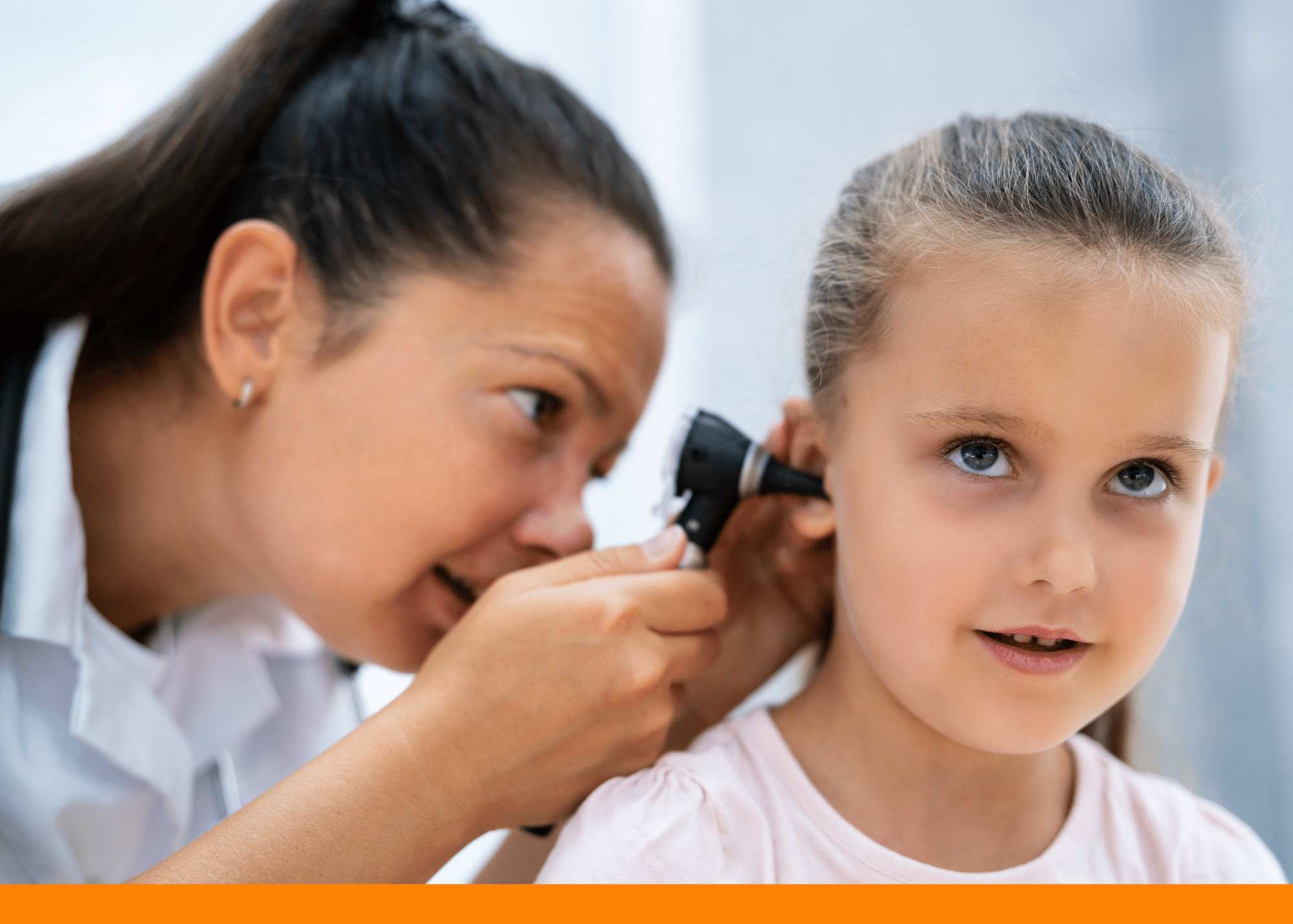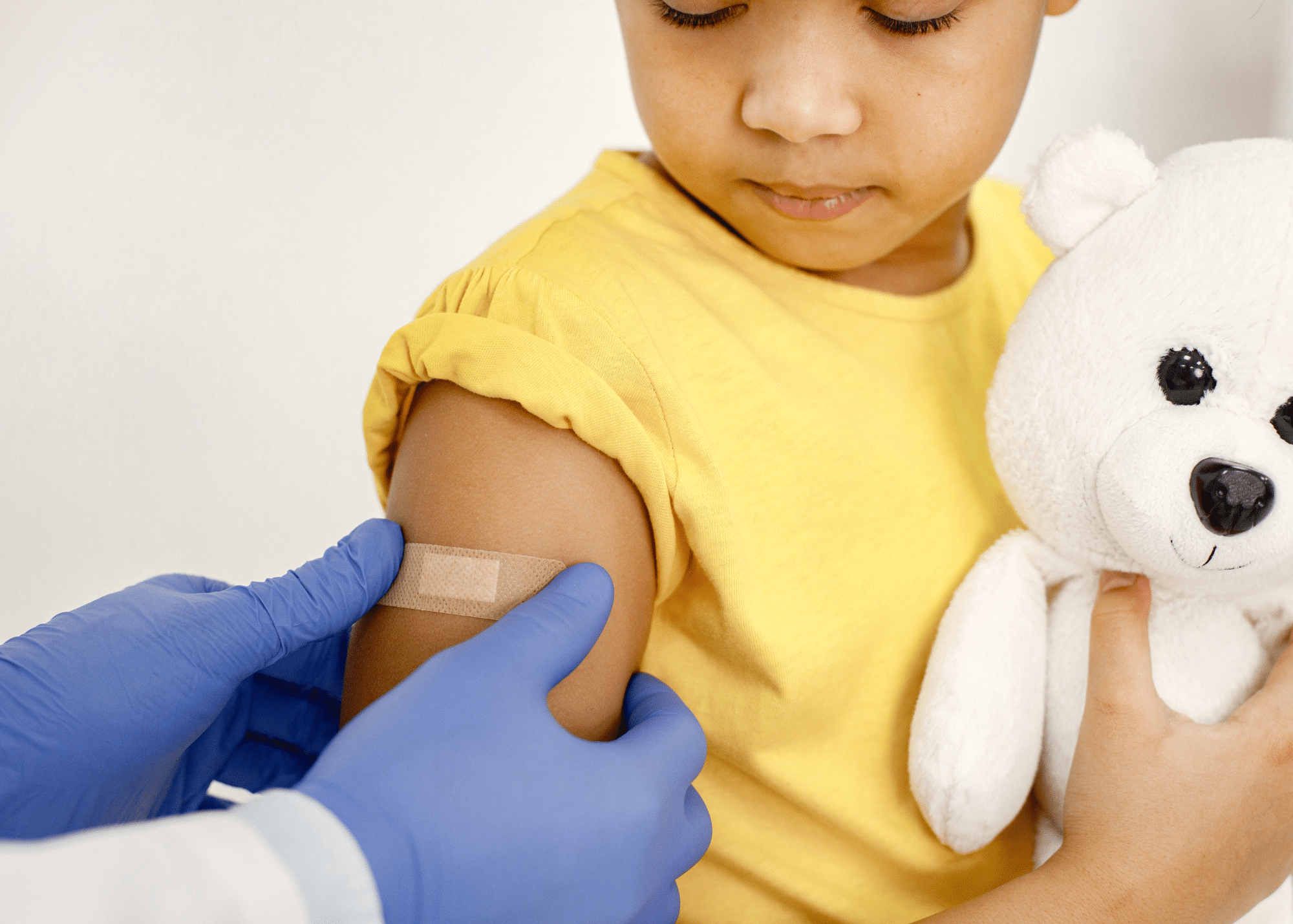
5 Common Daycare Illnesses
While adults and older children have more of a “blueprint” of immune tolerance built up over years of exposure to germs and viruses, infants and toddlers are more likely to contract illnesses as they are exposed to them. Daycare provides essential help for busy families; unfortunately, frequent sickness is often part of this experience. Take a moment to learn more about the signs and symptoms of five common daycare illnesses to help keep your child healthy and limit the spread of germs.
Know the Signs & Symptoms of These Common Daycare Illnesses:
1. Pink Eye
Pink eye is the common name for conjunctivitis, which is an inflammation or infection of the membrane covering the eye and eyelid. A pink eye infection can be viral or bacterial. Both forms are highly contagious and can spread rapidly among kids in a childcare facility who may itch their eyes and then touch toys or other surfaces. Pink eye can also be caused by inflammation resulting from allergies or an allergic reaction. If you notice redness in the white area of your child’s eyes, a healthcare provider can help determine if this is caused by a viral, bacterial or allergic reaction.
Signs and symptoms of pink eye include:
-
- Redness of the eye or inner eyelids
- Itching or burning sensation, characterized by frequent rubbing of the eye and general discomfort
- Watery or thick discharge, which is often crusty
- Sensitivity to light
If your child has viral or bacterial pink eye, it is important to keep them home from daycare until they are no longer contagious, which is 24 hours after they begin treatment. Visit a pediatric urgent care clinic to schedule your pediatric urgent care appointment.
2. Ear Infections
An ear infection generally refers to a viral or bacterial infection of the middle ear but can also be the result of a buildup of fluid in the ear. Young children are especially susceptible to ear infections because the size and function of their ear canals, or eustachian tubes, are not fully developed. In fact, Cleveland Clinic says ear infections are the most common childhood illness, second only to colds. The ears are sensitive, so an ear infection can cause noticeable pain and discomfort.
An ear infection typically involves these signs and symptoms:
-
- Tugging, pulling or poking at the ears
- Irritability or fussiness
- Disrupted sleeping, or changes in sleep patterns
- Loss of appetite
- Fever
- Drainage or discharge from the ear, which can be yellow, white or brown
While an ear infection on its own is generally not contagious, it may be the result of a contagious virus or underlying illness — and a healthcare professional should evaluate an infection of any kind. Find a pediatric urgent care open now near you.
3. Strep Throat
Strep throat is an infection caused by the streptococcus bacteria which can cause severe throat pain. Strep is less common in children under 3 years old due to the small size of their tonsils. However, strep can cause severe or life-threatening complications if it is not treated properly, so it is important to make an appointment with your healthcare provider for a pediatric strep test if you suspect your child may have strep throat or if there has been an outbreak at their school or daycare.
Common symptoms of strep throat are:
-
- Sore throat
- Pain while swallowing
- Red and swollen tonsils, sometimes with white patches or streaks of pus
- Loss of appetite or changes in normal eating habits, such as a preference for foods that are easy to swallow
- Fever
- Swollen lymph nodes in the neck
- Nausea and/or vomiting
A doctor at a pediatric strep urgent care can perform a children’s rapid strep test to confirm whether or not the infection is present. Strep is typically no longer contagious after 24 hours of treatment with antibiotics. If the infection is also accompanied by a fever, you should keep your child home from school or daycare until they are fever-free for 24 hours without the use of fever-reducing medication.
4. Hand Foot & Mouth Disease
Hand, foot and mouth disease (HFMD) is a viral infection caused by the Coxsackie virus. This viral illness is characterized by sores in the mouth and a rash on the hands and feet. Like many viruses, HFMD is highly contagious and can spread quickly among young children in a daycare classroom. Although HFMD and the associated rash can cause distress and discomfort, the virus is common and not known to be serious.
The most obvious sign of HFMD is a rash on the hands and feet that is typically pink or red, and can have a blister-like appearance as the virus progresses. Other signs include:
-
- Fever
- Sore throat and/or pain when swallowing, resulting from sores in the mouth
- Loss of appetite or changes in normal eating habits, such as a preference for foods that are easy to swallow
- Irritability or discomfort, particularly in infants and toddlers
The virus will typically run its course in 7 to 10 days. While there is no specific treatment for HFMD, ensure your child stays hydrated and comfortable. Keep them at home until they are fever-free, and follow your school or childcare facility’s guidelines for when they are approved to return. If you notice any signs of dehydration, make an appointment with a healthcare provider.
5. Respiratory Syncytial Virus (RSV)
Respiratory syncytial virus, or RSV, is a common respiratory virus that tends to spread in the fall and winter months. RSV produces a cough and symptoms similar to a cold, but it can be severe and unpredictable in infants, young children, and older adults. According to the American Lung Association, the virus can survive for hours on hard surfaces. An individual with RSV can also spread the virus before they are symptomatic. For both reasons, RSV is extremely contagious.
The symptoms of RSV are:
-
- Runny nose
- Coughing
- Sneezing
- Wheezing or difficulty breathing
- Fever
- Decreased appetite
If your child is wheezing or experiencing difficulty breathing, seek immediate medical attention. Infants who are 6 months or younger and experiencing any signs or symptoms of RSV, regardless of whether or not they have labored breathing, should be evaluated by a health professional. They will be able to perform a RSV test on your baby. For RSV testing near you, find a pediatric RSV test urgent care here.
It is typically okay to return to daycare after RSV once your child is fever-free for 24 hours without the use of fever-reducing medication, and once they are no longer wheezing or coughing excessively — but follow your school or childcare facility’s recommendations, along with the recommendations of your healthcare provider.
Is it something else? The cold, stomach bugs and other viruses are common in schools and daycares — and a medical professional can give you a diagnosis and a treatment plan to help your little one start feeling better. Please call 911 or visit your local emergency room if your child has a medical emergency or is experiencing symptoms of a life-threatening illness.
Visit an Urgent Care for Children Clinic Near You
When a rash, virus or infection happens, Urgent Care for Children is here for your family. Our Alabama pediatric urgent care centers offer walk-in availability and same-day appointments for infants, toddlers and children with common daycare illnesses and other health conditions. Our services include:
- Pediatric rapid strep tests
- Pediatric rapid flu tests
- Pediatric rapid Covid testing
- Pediatric rapid mono testing
- Pediatric RSV tests
- AND after-hours and weekend care when you need it most!
Whether you need after-hours and weekend care, or a quick and convenient option to see a pediatric urgent care provider, Urgent Care for Children is ready to help. With in-house lab services and a convenient in-house pharmacy, we can quickly take care of all your needs so you can focus on helping your child feel better as soon as possible. Save your spot in line at Urgent Care for Children today!



